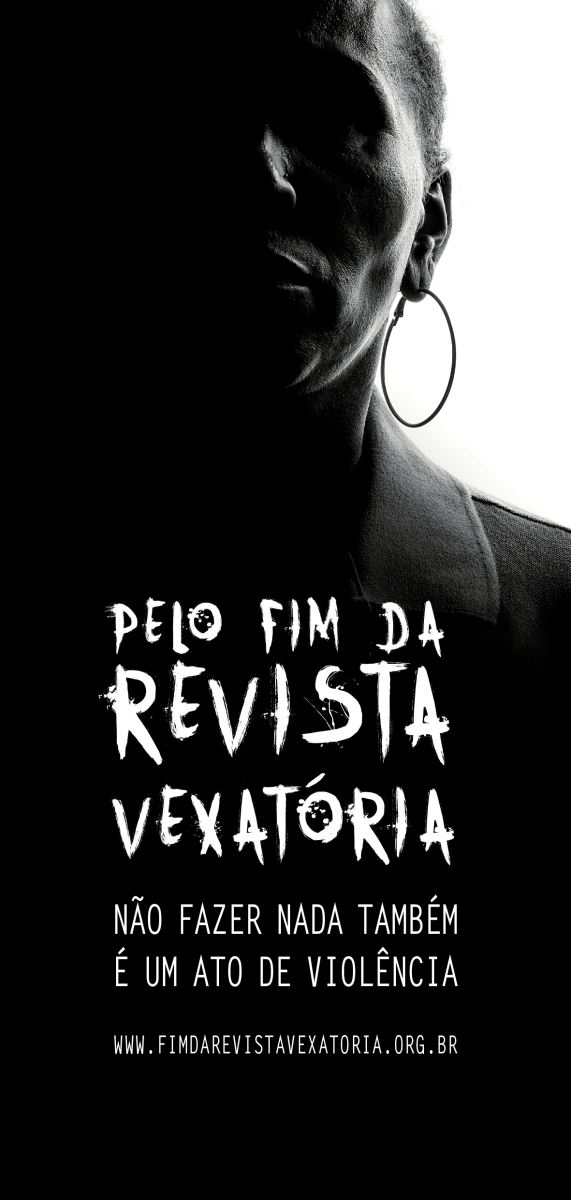Abusive searches banned in São Paulo

The state with the largest prison population in Brazil has banned one of the most offensive practices of the Brazilian prison system: the abusive search. The new law (15,552/14), approved by the São Paulo state legislature in July, was signed by Governor Geraldo Alckmin and published today, August 13, in the Official Gazette.
The ban is a victory for the relatives of the 190,000 prisoners in the state who have to endure the humiliation on visitation days.
As a result of the new law, prisons are now banned from subjecting visitors to invasive procedures, such as undressing, squatting repeatedly over a mirror and anal and vaginal inspections. Article 1 of the law states that “search procedures shall occur for security reasons and shall be performed with respect for human dignity”.
“The approval of the law is a major breakthrough and, since it recognizes that the abusive search is a humiliating practice, should be applied immediately. But we need to point out that the law alone is not enough. It needs to be enforced in the real world,” said Rafael Custódio, coordinator of Justice at Conectas. According to the text signed by Alckmin, the state government has 180 days to introduce the new law with a regulatory decree.
Vetoes
The downsides of the law came from two vetoes by the governor. The first determines that the ban will not cover secure psychiatric facilities or youth detention centers. As a result of the veto, abusive searches are only banned at ‘prison facilities’.
“The violation of the relatives of detained adolescents is no different from the violations committed against the relatives of prisoners,” criticized Custódio. “There is nothing to justify the recognition of the violation of one group, but not of another. This veto violates the constitutional principle of isonomy.”
The second veto withdrew from the text a paragraph that banned mechanical and electronic searches from being performed on pregnant women and people with pacemakers. The original draft of the text determined that these visitors would be subject to alternative searches. The final version of the law, however, does not specify the procedure for letting these people inside the state’s prisons.
Other states
States and municipalities that have already imposed total or partial bans on abusive searches have not experienced an increase in the number of security breaches inside their prisons. The state of Goiás, for example, has applied what it calls “humanized searches”, which ban nudity. Espírito Santo has passed a similar law. Following an unprecedented court ruling, the municipality of Joinville, in Santa Catarina, installed body scanners in its prisons. More recently, Recife also banned abusive searches in the municipality.
Other states already have laws that limit the procedure, but do not ban it altogether. This is the case with Minas Gerais, Rio de Janeiro, Rio Grande do Sul and Paraíba.
According to data gathered by the Criminal Justice Network based on official documents from the São Paulo Prison Administration Department, only 3 in every 10,000 abusive searches result in the seizure of prohibited items. Over the entire period studied by the Network, not a single weapon was found during the procedure.
National campaign
The ban on abusive searches in São Paulo comes in the wake of a national and international campaign of condemnation. In April, a movement led by the Criminal Justice Network resulted in the approval of a legislative bill on the federal level (7764/14) that bans the practice throughout the country. The text has already been unanimously approved in the Senate and is awaiting a vote in the lower house of Congress.
Help put a stop to this violence: go to www.fimdarevistavexatoria.org.


